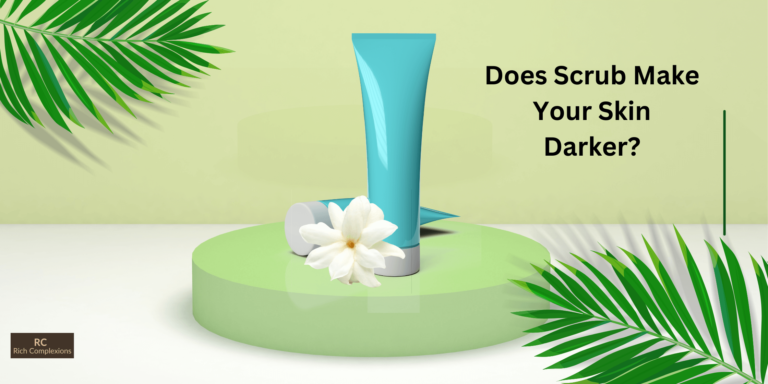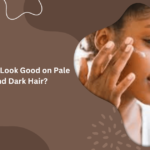Exfoliation, a key part of many skincare routines, involves removing dead skin cells to reveal fresher, healthier skin beneath. While this process can lead to a brighter complexion and smoother texture, concerns about whether scrubbing can make your skin darker are common. Let’s delve into this issue to understand the science behind it and how to exfoliate effectively without risking hyperpigmentation.
Understanding Exfoliation
Exfoliation can be mechanical (using physical scrubs) or chemical (using acids or enzymes). Mechanical exfoliation involves scrubbing the skin with granules, brushes, or sponges. The goal is to slough off dead skin cells that can clog pores and dull the complexion. However, if done improperly, this process can have adverse effects.
Why Scrubbing Might Cause Darkening
i. Over-exfoliation
One of the main reasons scrubbing might cause darkening is over-exfoliation. The skin’s outer layer, the stratum corneum, acts as a barrier. Excessive scrubbing can damage this barrier, leading to inflammation. Inflammation triggers an increase in melanin production as the skin tries to protect itself, which can result in post-inflammatory hyperpigmentation (PIH). This manifests as dark spots or an overall darker tone in the areas affected.
ii. Aggressive scrubs
Using scrubs with large, rough granules can cause microtears in the skin. These tiny injuries can lead to inflammation and subsequently to hyperpigmentation. It’s crucial to choose a scrub with fine, gentle particles that won’t harm the skin.
iii. Sun exposure
After exfoliation, your skin is more sensitive and vulnerable to UV damage. If you don’t apply sunscreen after scrubbing, sun exposure can lead to dark spots or an uneven skin tone. This is because the fresh skin exposed after exfoliation is more prone to UV-induced pigmentation.
iv. Underlying skin conditions
For individuals with conditions like melasma, eczema, or rosacea, scrubbing can exacerbate these issues, leading to increased pigmentation or worsening of symptoms. Consulting with a dermatologist before incorporating a scrub into your routine is advised if you have such conditions.
How to Prevent Skin Darkening from Scrubbing
- Moderation: Limit exfoliation to 1-2 times per week, depending on your skin type. Over-exfoliation can disrupt the skin barrier, leading to darkening and other issues.
- Choose the Right Product: Opt for scrubs with gentle, rounded particles like jojoba beads or rice bran. Avoid those with sharp or jagged edges, such as crushed walnut shells, which can damage the skin.
- Moisturize: After exfoliating, apply a good moisturizer to help restore the skin’s barrier and keep it hydrated. This can prevent dryness and irritation, which can lead to darkness.
- Sun Protection: Always apply a broad-spectrum sunscreen with at least SPF 30 after exfoliating. This protects your freshly exposed skin from UV rays, reducing the risk of hyperpigmentation.
- Consult a Dermatologist: If you notice any unusual darkening after exfoliation, it’s best to consult a dermatologist. They can recommend appropriate treatments and adjustments to your skincare routine.
Conclusion
Scrubbing can potentially make your skin darker if done incorrectly, primarily due to over-exfoliation, the use of aggressive scrubs, and inadequate sun protection. However, when done properly, exfoliation can lead to a brighter, more even skin tone. The key is to be gentle, moderate the frequency, and protect your skin afterward.
Always listen to your skin’s needs and consult a professional if you experience any adverse effects.



